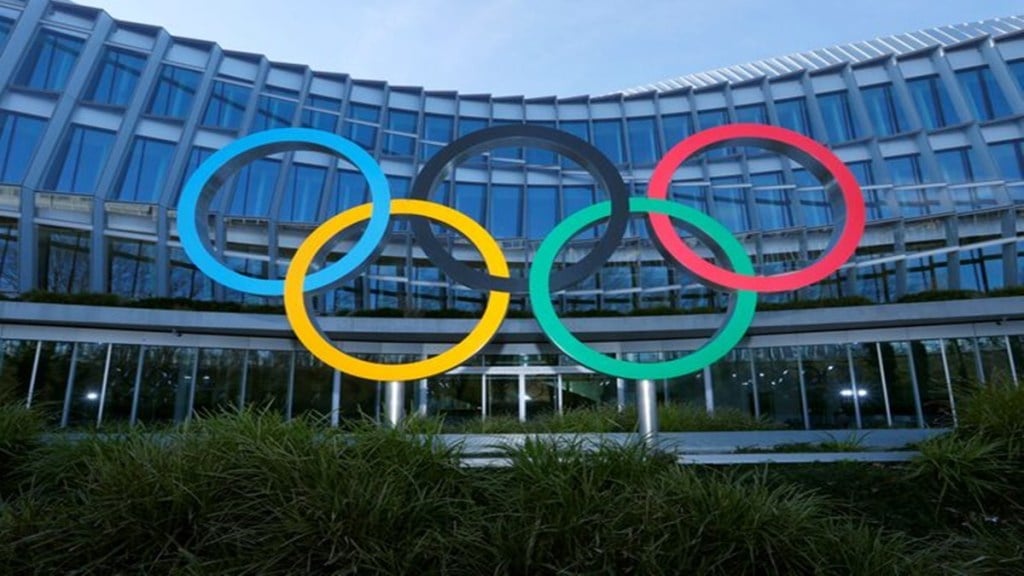India has made an official bid to host the 2036 Olympics, throwing its hat in the ring after earlier expressing interest to vie for the 2032 Games. Ritwik Sharma explains the selection process, the pros and cons of staging an Olympics, and which Indian cities are game for it
India’s Olympics bid takes off
Last month, India took its first step towards fulfilling its ambition of hosting the 2036 Summer Olympics and the Paralympic Games. The Indian Olympic Association (IOA) submitted a formal letter of intent to the International Olympic Committee’s (IOC) Future Host Commission. India had previously expressed in hosting the 2032 Olympics but did not join the race among cities.
Last year at the 141st IOC session in Mumbai, Prime Minister Narendra Modi had announced India’s strong desire to host the Olympics for the first time. IOC president Thomas Bach has backed India, but there are other contenders too — Mexico, Poland, Egypt, South Korea, Saudi Arabia, Qatar, Indonesia, Chile and Turkey. If India wins the bid, it will become only the fourth Asian nation — after Japan (Tokyo 1964 and 2020), South Korea (Seoul 1988), and China (Beijing 2008) — to host the world’s premier multi-sporting event. Among Indian cities, Ahmedabad is being seen as a front-runner to be the host city.
What is the host city selection process?
The approach to host the Olympics initially involves “informal dialogue”. The IOC is always open to informal and non-committal discussions with any contender and its national Olympic committees. With the submission of the letter, India has moved to the “continuous dialogue” stage. At this stage, the IOC supports the interested party to develop a Games concept and timeframe that align with their local long-term development goals. The next stage, “targeted dialogue”, is a collaborative partnership that is opened when the IOC’s executive board invites one of more preferred hosts to refine their proposals to host a specific edition of the Olympic and Paralympic Games and the Youth Olympic Games. Finally, host selection is done by the IOC session where members vote by secret ballot. The elected host then signs a contract with the IOC.
What does the IOC process prioritise?
The Olympic agenda 2020 was adopted in 2014 as a guide for the Olympic movement. The decision to have an election process was the result of past challenges such as high costs (cities trying to outbid each other), reputational risk (aggressive lobbying led to ethical concerns) and high expectations leading to too many losers. Therefore, the IOC consults independent sources on several issues during “continuous dialogue”, including human rights, business for social responsibility, and sustainability.
The fresh approach also emphasises flexibility and contextualisation, as the IOC works with potential hosts on projects that fit local realities, and to ensure they align with existing long-term plans. Besides, it emphasises sustainability and legacy creation of venues, apart from the IOC offering expertise to reduce host costs.
Hosting costs can cripple city councils
Hosting the olympics offers an opportunity to make a statement as a rising economy, apart from further burnishing India’s soft power and its ambition as a leading player on the world stage. Although historically it has been a source of pride for nations, hosting the Olympics has increasingly been critiqued for being unsustainable and financially unfeasible. For instance, the 2016 Rio Olympics was held amid protests over a political and economic crisis in Brazil, while the 2004 edition in Athens is seen as contributing to Greece’s financial crisis, leaving the country with unutilised infrastructure and debt. The 2024 Paris Olympic and Paralympic Games is estimated to have cost around $9.7 billion, about 25% over the initial budget. The 2016 Rio Olympics and 2020 Tokyo Games overshot their original budgets by more than 350% and 128%, respectively, according to a University of Oxford study.
Does India have the infrastructure?
India has so far hosted comparable multi-sporting events thrice, two Asian Games (1951 and 1982) and a Commonwealth Games (2010) — incidentally all of them in New Delhi. According to a report titled “Sport Cities of India 2024” by CII and Grant Thornton Bharat, besides Delhi, Bhubaneswar, Chennai, Bengaluru, and Pune are key players in India’s sports development, based on an evaluation of parameters including readiness to host international events. It also identified Ahmedabad, Panaji, and Panchkula as rising venues. Given its experience and availability of Olympic-level facilities, Delhi may appear to be a top contender as a host city. But all eyes will be on Ahmedabad. The state government has set up a firm called Gujarat Olympic Planning and Infrastructure Corporation Ltd, and earmarked Rs 6,000 crore to build six sports complexes to host the 2036 Games in case India wins the bid.


